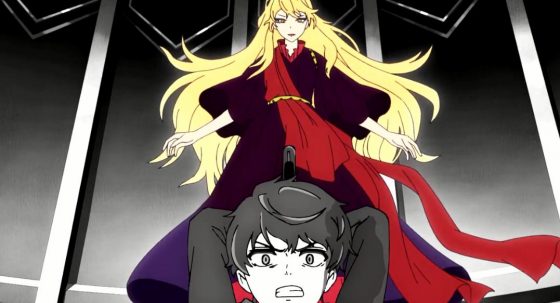Tower of God’s Unlikely Journey Toward Becoming an Anime


Spring 2020’s big breakout hit, Tower of God, has an unusual backstory. Instead of being adapted from a manga, light novel, game, or other Japanese media, it’s actually based on a Korean webcomic hosted on the platform Webtoon. We’ve seen the occasional French or Canadian co-production and Chinese animation studios regularly adapt their country’s most popular comics, but how did this peculiar arrangement happen? Let’s delve into Tower of God’s unlikely journey to become an anime!
Naver and Webtoon
The Naver Corporation, a search engine and media company that essentially functions as South Korea’s version of Google, launched the webcomic platform Webtoon in 2004 as a place for amateur artists to publish their works. A young visual arts major named Lee Jong-hui (also known by his pen name S.I.U.) uploaded the first chapter of Tower of God in 2010, based on story ideas that he had planned out while serving in the military. The stylistic art and detailed lore drew readers in, and soon Tower of God became the most popular comic on Webtoon. The series gained traction outside of its home country when Naver released a mobile RPG adaptation in 2013 and launched Webtoon globally in 2014 as Line Webtoon with official translations of its top titles included. Since Naver’s Line was a widely used messaging app in Japan already, this laid the foundation for a growing Japanese fanbase. Even though Japan and Korea don’t tend to like each other very much, a collaboration for Tower of God was inevitable.
The Anime Adaptation
Anime adaptations of webcomics have really come into their own in recent years, spurred on by the back-to-back smash successes of ONE’s One Punch Man and Mob Psycho 100 (webcomic authors are apparently partial to three-letter pen names). So, with what was essentially a guaranteed hit on their hands, Japanese studio Telecom Animation Film (known for their work on Orange, All Out, and Lupin III parts 4 and 5) took on the project. The anime is being broadcast simultaneously in Korean and Japanese, and its OP and ED also change language depending on the country. International streaming sites like Crunchyroll are promoting the series heavily and Australian composer Kevin Penkin (who previously worked on Made in Abyss) is providing the music, so there’s clearly a lot of faith that Tower of God will perform well all around the world.
What This Means for Other Korean Comics
If Tower of God’s anime adaptation can build and maintain an international fanbase, it could open the floodgates for other Korean webcomics to take center stage in the anime landscape. Fellow Webtoon hits Noblesse and The God of High School have adaptations underway by Production I.G and MAPPA, respectively, and it’s possible that even Chinese anime could get its chance to shine eventually. Anime could truly become an international medium!
Final Thoughts

Tower of God is one of the first Korean comics to be adapted into a mainstream Japanese anime, and it looks like it might represent a paradigm shift in anime production. S.I.U.’s complex magnum opus may have started out small, but it’s only going to get bigger from here. What did you think of our analysis? Have you been watching Tower of God this season? Let us know in the comments, and thanks so much for reading!
[recommendedPost post_id='288919' url='' title='' img='' class='' widget_title='']

No comments